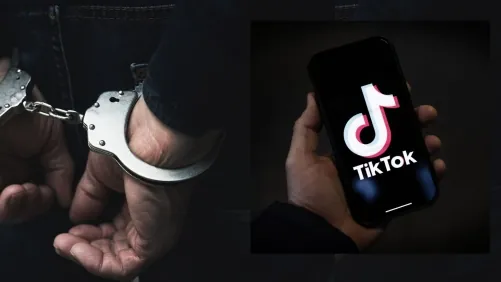Honour” Turns Deadly as Social Media Sparks Family TragedyIn a deeply disturbing incident that has sent shockwaves across the globe, a Pakistani father has been arrested for fatally shooting his 16-year-old daughter after she refused to delete her TikTok account, police in Rawalpindi confirmed.
“The girl’s father had asked her to delete her TikTok account. On refusal, he killed her,” a police spokesperson revealed, highlighting the chilling nature of the crime.
The incident unfolded in the quiet neighbourhood of Dhok Chaudhrian, Rawalpindi, just outside Pakistan’s capital, Islamabad. According to police reports, the teenage girl had been actively posting videos on TikTok, a platform that has become a cultural phenomenon among Pakistani youth.
Her father, reportedly angered by what he considered “improper” online behaviour, demanded she delete her account.
When the young girl stood her ground and refused, the confrontation escalated. In a fit of rage, the father allegedly retrieved a firearm and shot his daughter. The family initially attempted to cover up the crime as a suicide, but inconsistencies in their story and forensic evidence soon exposed the truth.
Neighbours described the family as “quiet but traditional,” with one resident saying:
“We never imagined something like this could happen here. It’s heartbreaking to see a young life lost over something so trivial.”
A Pattern of Violence

This horrific incident is not an isolated case. In Pakistan, so-called “honour killings” remain a grim reality, with hundreds of women and girls losing their lives each year for defying conservative social norms.
Social media, while offering a rare window to the world and a platform for self-expression, has also become a new battleground for control and repression.
“Crimes against women and children are intolerable; the accused will be prosecuted with solid evidence and ensured a just punishment,” police authorities assured the public.
Rights activists have condemned the killing, calling for urgent reforms and greater protection for women and girls. “We cannot allow tradition to be used as an excuse for murder,” said a spokesperson for the Human Rights Commission of Pakistan.
TikTok: A Double-Edged Sword
TikTok is wildly popular in Pakistan, especially among the youth, offering a platform for creativity and even financial independence for women in a society where less than a quarter of women participate in the formal economy.
However, the app has faced repeated bans and threats of censorship from authorities, who accuse it of spreading “immoral behavior” and “indecent content”.
The digital gender gap remains stark: only 30% of women in Pakistan own a smartphone, compared to 58% of men—the largest gap globally.
For many young women, TikTok is more than just an app—it’s a lifeline to the outside world, a way to express themselves, and sometimes, a source of income.
But as this tragedy shows, the price of self-expression can be devastatingly high in societies where patriarchal values still hold sway.
Community and Global Reactions
The news has sparked outrage both within Pakistan and internationally. Social media users have flooded platforms with messages of support for the victim and calls for justice. Hashtags like #JusticeForDua and #StopHonourKillings have been trending, with activists urging the government to take stronger action.
In Nigeria, where issues of gender violence and digital freedom are also hot topics, many are drawing parallels and calling for renewed efforts to protect young women online and offline.
“No one should lose their life over a social media account. It’s time to confront the real dangers lurking behind the screens.”
Quote of the Day
“The true measure of any society can be found in how it treats its most vulnerable members.”
— Mahatma Gandhi
This heartbreaking story is a grim reminder of the dangerous intersection between tradition, technology, and gender in parts of the world. As social media continues to reshape societies, the urgent need for dialogue, education, and legal protection for vulnerable groups cannot be overstated.
